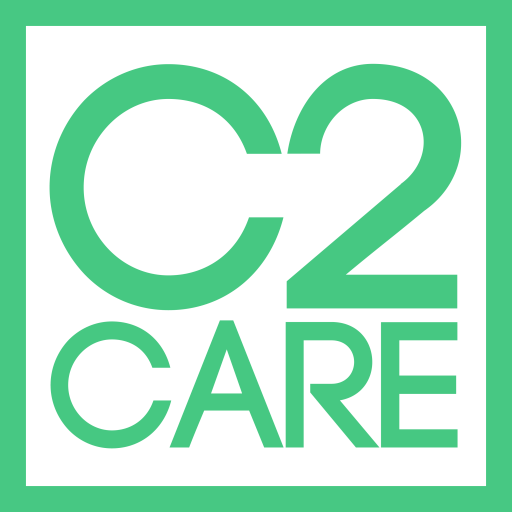Depuis quelques mois, le monde entier fait face à l’épidémie de la Covid-19, suscitant inquiétude et préoccupation dans la population générale. Elle entraîne, d’une part le risque de décès dû à l’infection virale, et d’autre part une pression psychologique importante. Suite aux mesures gouvernementales, en particulier la quarantaine, le quotidien et les habitudes des individus ont été bouleversées. Plusieurs études récentes ont mis en lumière l’impact de ces changements sur la santé mentale des individus, provoquant entre autres, une augmentation des symptômes dépressifs, anxieux et des troubles liés à l’usage de substances. Au vu des difficultés psychologiques auxquelles la population est confrontée, les professionnels de la santé mentale sont en première ligne afin de pouvoir proposer des prises en charge psychothérapeutiques. L’intervention de ces professionnels est indispensable notamment auprès des populations à risque : les personnes âgées, étant plus souvent socialement isolées, les personnes souffrant d’un trouble psychiatrique ainsi que les personnes souffrant de dépression, d’anxiété et d’usage de substance. Toutefois, la menace d’une seconde vague de pandémie est réelle, raison pour laquelle le respect des règles sanitaires et d’hygiène sont cruciales.
Comment limiter le risque de propagation au cabinet
Au vu de la situation sanitaire et pour répondre aux recommandations gouvernementales en termes d’hygiène, les professionnels de la santé mentale recevant des patients dans leur cabinet peuvent suivre différentes recommandations afin de limiter la propagation de la Covid-19. Les recommandations sont les suivantes :
Dans la salle d’attente
- Autoriser l’accès uniquement aux patients ayant un rendez-vous.
- Afficher dans la salle d’attente les mesures relatives aux gestes barrières.
- Aménager les chaises de la salle d’attente afin de pouvoir respecter la distanciation physique.
- Informer les patients de ne pas arriver en avance lors des rendez-vous afin de diminuer le nombre de personnes présentes.
- Mettre à disposition du gel hydroalcoolique ou un lavabo avec du savon.
- Supprimer les objets non-indispensables qui risqueraient d’augmenter le risque de contamination (magazines, jeux…).
Dans le cabinet
- Appliquer les mesures barrières en se tenant à un mètre de distance des patients.
- Favoriser la prise de rendez-vous à distance.
- Se laver les mains régulièrement.
- Renouveler l’air du cabinet entre chaque consultation.
- Désinfecter régulièrement les pièces du cabinet.
- Proposer au patient de prendre son propre matériel autant que possible (stylos…).
Autant que faire se peut, l’utilisation de la téléconsultation reste à privilégier afin de diminuer les risques de propagation du virus. Pour ce faire, C2Care vous offre la possibilité de réaliser vos séances et prises en charge thérapeutiques sur la plateforme Psy.live. Cette plateforme simple d’utilisation et innovante prend en charge les paiements sécurisés et vous donne la possibilité d’envoyer à vos patients les tâches à réaliser au domicile. L’utilisation de cette plateforme vous permettra de poursuivre les consultations compte tenu des conditions sanitaires et favoriser le bien-être psychologique de vos patients. Cette plateforme offre une plus grande accessibilité aux patients tout en réduisant les difficultés liées aux trajets et permet de plus, aux professionnels de pratiquer les consultations avec des patients résidant à l’étranger.
Comment utiliser les TERV en respectant les règles d’hygiène tout en protégeant ses patients
Face à l’impact de cette pandémie sur la santé mentale de la population générale, il apparaît que les Thérapies par Exposition à la Réalité Virtuelle (TERV) ont un rôle prédominant à jouer. Tout d’abord, parce que leur efficacité a été démontrée dans de nombreux articles scientifiques, notamment pour traiter les troubles anxieux ainsi que les troubles liés à l’usage de substance.
Selon l’Organisation Mondiale de la Santé (OMS), la transmission de cette maladie se ferait par des gouttelettes respiratoires en provenance de la bouche ou du nez des individus lorsqu’ils parlent, toussent ou éternuent. En outre, le fait d’inhaler ou toucher des surfaces ayant été contaminées pourraient engendrer la contraction de la maladie.
Il est recommandé aux professionnelles de la santé et aux patients de se laver les mains avant et après avoir utilisé les appareils de réalité virtuelle et de les désinfecter. Une solution existe afin de protéger vos patients, tout en continuant à utiliser l’exposition en réalité virtuelle. En effet, dans un souci d’hygiène et de sécurité, C2Care propose des masques en silicone permettant la protection de vos patients. Il suffit de le placer sur la partie du casque en contact avec le visage du patient. L’avantage de ce masque en silicone est qu’il pourra être réutilisé après avoir été soigneusement désinfecté. Grâce à cette solution innovante, les TERV pourront toujours être utilisées par les professionnels de la santé mentale tout en respectant les mesures gouvernementales afin de respecter les règles d’hygiène et favoriser la sécurité des patients.
Sources:
Torales, J., O’Higgins, M., Castaldelli-Maia, J. M., & Ventriglio, A. (2020). The outbreak of COVID-19 coronavirus and its impact on global mental health. International Journal of Social Psychiatry, 0020764020915212.
http://pu.edu.pk/MHH-COVID-19/Articles/Article46.pdf
Druss, B. G. (2020). Addressing the COVID-19 pandemic in populations with serious mental illness. JAMA psychiatry.
https://jamanetwork.com/journals/jamapsychiatry/fullarticle/2764227

